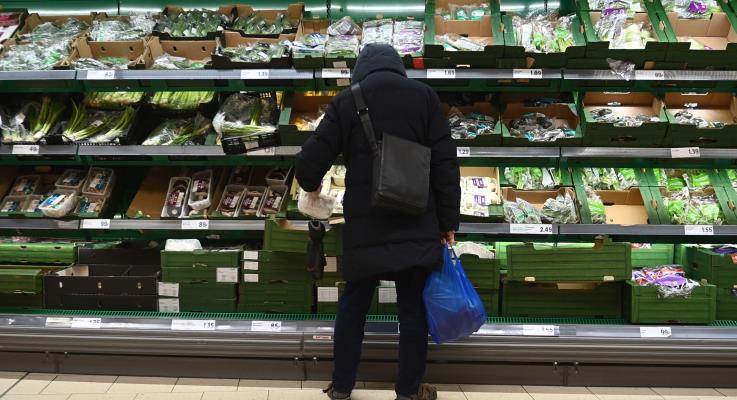Measures aimed at tackling the high cost of living will return, Finance Minister Makis Keravnos announced on Thursday, as zero VAT will be implemented on a number of products.
His statements were made after a meeting at the presidential palace with President Nikos Christodoulides, who earlier pledged action would be taken.
Keravnos said there will be zero VAT on diapers for infants and adults, baby milk, female hygiene products, fruit and vegetables.
The decision is expected to be ratified by the cabinet next week. It’s understood, however, that the zero VAT on the designated items will likely kick in at the start of November – giving shops time to adjust their prices.
Keravnos underlined that the measure mainly targets young couples and the middle class.
“We have come up with some additional measures that are mainly aimed at vulnerable groups, but also at the middle class as a whole and young couples,” he said.
“Watching the price developments, we feel that at this moment – as we have said many, many times that we are watching the developments in the economy and in society – it is time for this category of products to be brought back to zero VAT.”
Keravnos said as a result of the government’s economic policy, the middle class has been strengthened in terms of population and has risen from 58.6 per cent in 2005 to 64.1 per cent.
“The guiding principle of any economic and social policy has always been to strengthen the middle class, which has traditionally been the backbone of the economy and society.
“The economic policy the government is pursuing is one that aims not only for financial stability, sustainability and resilience, but for strengthening the middle class and vulnerable groups in this difficult financial and geopolitical environment.”
Opposition party Akel had slammed an earlier government decision not to extend the electricity subsidy and zero per cent VAT over key items.
The finance ministry had defended its policy, arguing that inflation rates are expected to stabilise at two per cent. Energy costs and fuel prices have also gone down, and state intervention in the market should be avoided for extended period of times, it specified.
The measure had been in place from March 2023 until October 2024, and has come at a cost of €201 million, according to the finance ministry.
Earlier in the day, Christodoulides said the government had taken the initiative to reform the country’s tax system.
“A key component of the country’s fiscal transformation is to strengthen the middle class of our country, which has been the backbone of the economy and society.”
The president took an apparent dig at critics over the cost of living, calling on everyone “not to take advantage of the difficult times some of our compatriots are going through.
“We’ve seen where those policies drove the country.”
For his part, government spokesman Constantinos Letymbiotis sought to head off criticism of the administration’s economic policies by citing some key data: GDP growth of 3.7 per cent, a low unemployment rate, lower public debt, and successive upgrades of the country’s sovereign credit rating.
And he contrasted the present situation to the administration of Akel from 2008 to 2013.
“Having been an opposition party for the last 11 years, Akel is still dogged by the images of food banks, the deadly blast at Mari, economic devastation and collapse, 21 successive credit downgrades, and unemployment rocketing to 17 per cent.”
Hitting back later, Akel suggested the Christodoulides government likes to hide behind a fig leaf of false prosperity.
“If everything is so great with the economy and society, as the government spokesman claims, why is the government so worried about Akel’s criticism?” the party asked rhetorically.
“Could it be because they’re not convincing the public, as a large cross-section of the public is being crushed by continuing impoverishment due to the high cost of living?”








Click here to change your cookie preferences